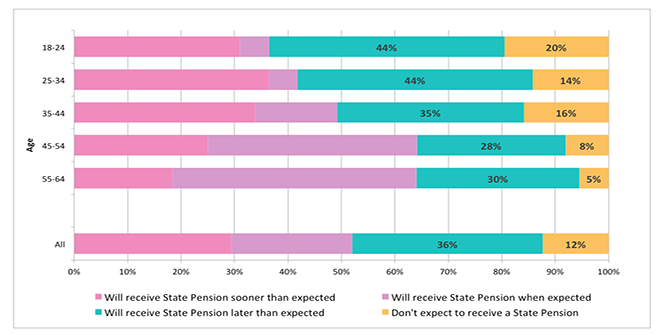 After David Cameron’s much covered immigration speech earlier this week, Tim Bale questions whether there was anything more to the Prime Minister’s announcements than a desire to head off the advance of UKIP and turn voter’s attention away from issues on which the Government are currently failing to meet public expectations.
After David Cameron’s much covered immigration speech earlier this week, Tim Bale questions whether there was anything more to the Prime Minister’s announcements than a desire to head off the advance of UKIP and turn voter’s attention away from issues on which the Government are currently failing to meet public expectations.
The Prime Minister’s Ipswich speech brings to mind the message on those little red boxes on the walls at work: ‘In case of fire, break glass.’ Sounding the alarm on immigration is what David Cameron does when he’s in serious trouble. As a liberal, it might not be something he wants or likes to do. It’s also something he does sparingly so as not to diminish the impact of any personal intervention that he makes. But immigration, and in particular the putative pressure on public services and the public purse which it causes (and which provides him with the cover he needs to talk about it in supposedly reasoned, almost regretful tones), has helped Cameron out in the past. It may do so again, but at what cost?
Let’s rewind for a moment back to the summer of 2007. Things had been going pretty well for Cameron during his first year or so as Tory leader when suddenly it all began to go wrong. Blair was replaced by Brown who, quite unexpectedly, enjoyed a bounce in the opinion polls. Meanwhile, the Tories were tearing lumps out of each other over grammar schools. They then went on to suffer a humiliating defeat in a by-election in Ealing for which they had high (though probably always inflated) hopes. Soon after that, Cameron was lambasted in the press for insisting on jetting off for what some of his critics saw as a glorified photo-call in Rwanda while back at home parts of the country, including his constituency were under flood water. People were beginning to talk about Labour winning a snap election and Cameron’s time as leader being over before it had really begun.
So what does Cameron do? He goes on Newsnight and, after eighteen months during which the i-word had barely passed his lips, starts sympathising with people’s ‘very real concern about levels of immigration’ and, stressing that their concern has nothing to do with cultural or colour prejudice and everything to do with pressure on public services, suggests he plans to take ‘some fairly tough and rigorous action’. And lo and behold, the clouds part and the sun shines out again. After a dreadful summer, Cameron begins to be given the benefit of the doubt by the right-wing press – helped, too, by him suddenly taking a tougher line on crime (from ‘hug a hoodie’ to ‘mug a hoodie’ as the Sun approvingly puts it), by his sure-footed reaction to the tragic shooting of schoolboy, Rhys Jones, and by his ‘bring it on’ speech to a Tory Conference already in seventh heaven after George Osborne’s promise (try to keep a straight face at the back) to cut inheritance tax.
Then, of course, it was enough for Cameron simply to talk, to toot on the dog whistle. Now he’s in government. Not only that, but he now needs to trump Labour and Lib Dem politicians who are frantically trying to reposition their parties on an issue on which they’ve long been way out of line with public opinion. And then of course, there’s UKIP – promising the impossible but doing it very well indeed. As a result, Cameron has to come up with something tangible – something even better (because more emotive) than Theresa May’s progress on reducing numbers.
What those things are, however, matters less than the language in which they are couched. It’s the symbolism rather than the substance that really counts. Hence Cameron’s announcement of a series of measures on health and welfare that purport (one would guess at a good deal of administrative cost and complexity) to tackle a problem that most experts seem to agree isn’t really there. Hence a speech that, one suspects, started with the soundbites (‘ending the something for nothing culture’, ‘we’re rolling up that red carpet and showing them the door’, etc., etc.) and only then came up with the policies to match.
No doubt the PM’s Ipswich intervention will help cement the Tories’ lead over Labour as ‘the best party to handle’ this notoriously emotive issue. It will also help to make it more salient – priming voters to believe it is even more important than they do already and thus helping the Conservatives to frame the next election around issues they, rather than their opponents, ‘own’. But whether that will be enough to win them that election is one heck of a moot point.
For one thing, UKIP’s rise means that the Tories’ ownership of immigration is not as secure as it once was – although on this they only have themselves to blame since, by choosing to ‘bang on’ about a subject that is meat and drink to Nigel Farage, they’ve gifted him a huge opportunity rather than, as they naively hoped, headed him off at the pass.
The damage that UKIP will do the Tories at a general election is often overrated: it’s unlikely to result in the loss of as many seats to the Lib Dems and Labour as the hysterical back-of-an-envelope calculations produced by Conservative right-wingers suggest. But what even the strongest imaginable UKIP performance definitely won’t do is to do what such performances from its counterparts in continental Europe do for centre-right parties there – namely to produce a bunch of populist parliamentarians who can either support the formation of a centre-right minority government or join a coalition that turns that minority into a working majority.
Focusing on immigration has another big downside. As Cameron himself concluded (with the help of Michael Ashcroft) after seeing what happened to Hague, IDS and Howard, strengthening the Tory lead on an issue they already own won’t distract as many voters from the economy, health and education as some in the Party hope it will. Nor – just as importantly – will it help the Conservative Party persuade ethnic minorities and well-heeled, well-educated liberals that it is, after all, the party for them.
Cameron surely realises all this. But he seems to have decided (possibly with the help of Lynton Crosby, who knows?) that this is a risk worth running. Combined with a campaign that doesn’t avoid the economy but throws everything into the message that the mess we’re in is still Labour’s fault and that only the Tories can be trusted to get us out of it without us going the way of Cyprus, it may work – especially if people can also be persuaded that a high proportion of benefit claimants are either scroungers or foreigners, or both.
But will the short-term gain be worth the long-term damage that Cameron’s speech (and Nick Clegg’s depressing effort just a few days before it) will do – not just to rational public policy-making and honest engagement with the public’s heartfelt (if occasionally misplaced) concerns, but also to the Tories’ own electoral and governmental ambitions?
This is where the analogy with the little red boxes on the walls at work begins to break down. Breaking the glass and then pushing the button behind has consequences, but in real life, rather than politics, they are generally benign: emergency crews will rush round and put out the blaze, hopefully before it gets a chance to take hold. Sounding the alarm on immigration – even when it’s a false alarm – may only add fuel to the fire.
Note: This article gives the views of the author, and not the position of the British Politics and Policy blog, nor of the London School of Economics. Please read our comments policy before posting.
Tim Bale is Professor of Politics at Queen Mary, University of London. He is the author of The Conservative Party from Thatcher to Cameron (Polity, 2010). His latest book is The Conservatives since 1945: the Drivers of Party Change (Oxford University Press, 2012).








1 Comments